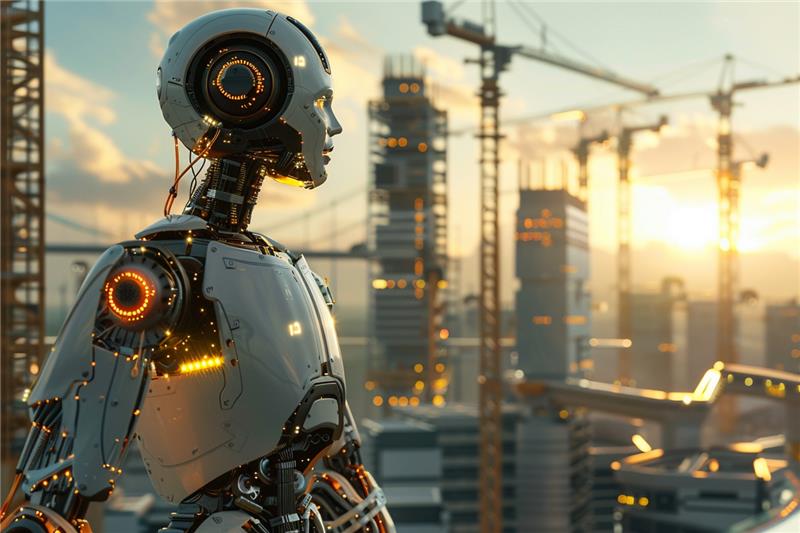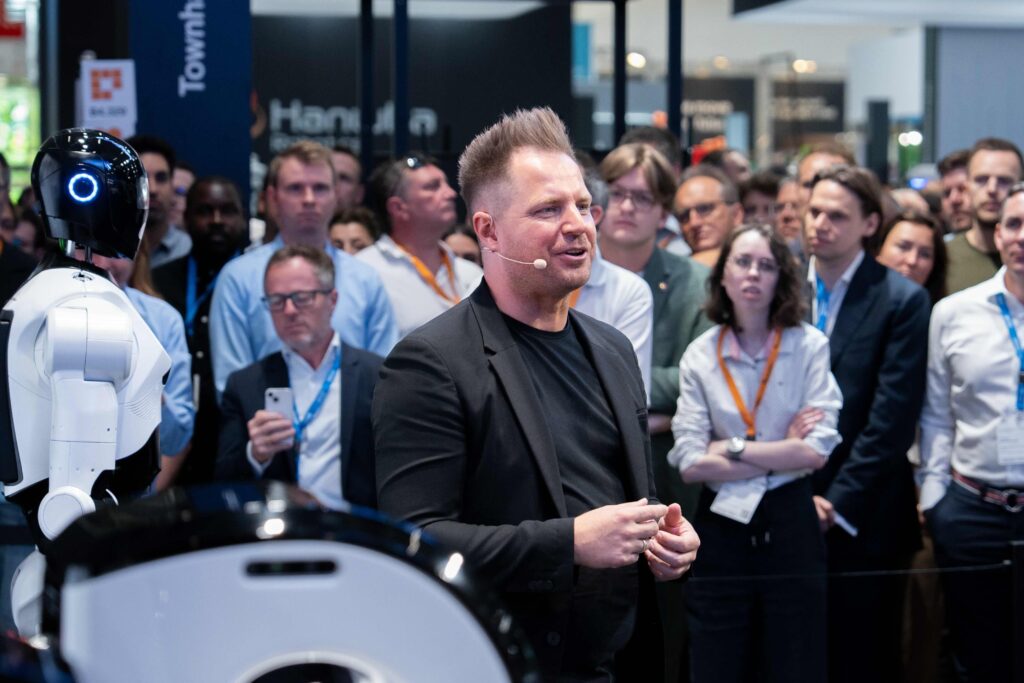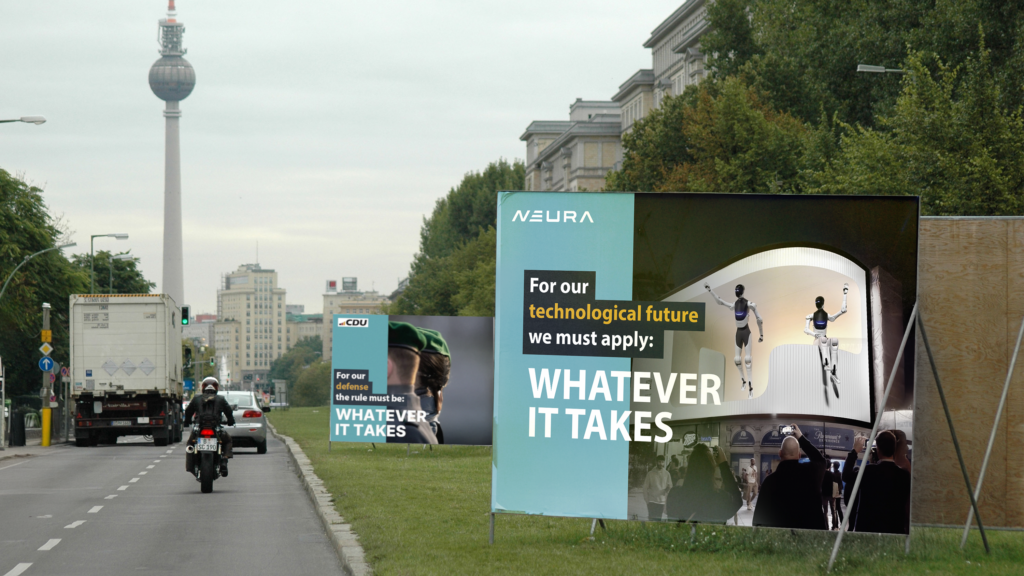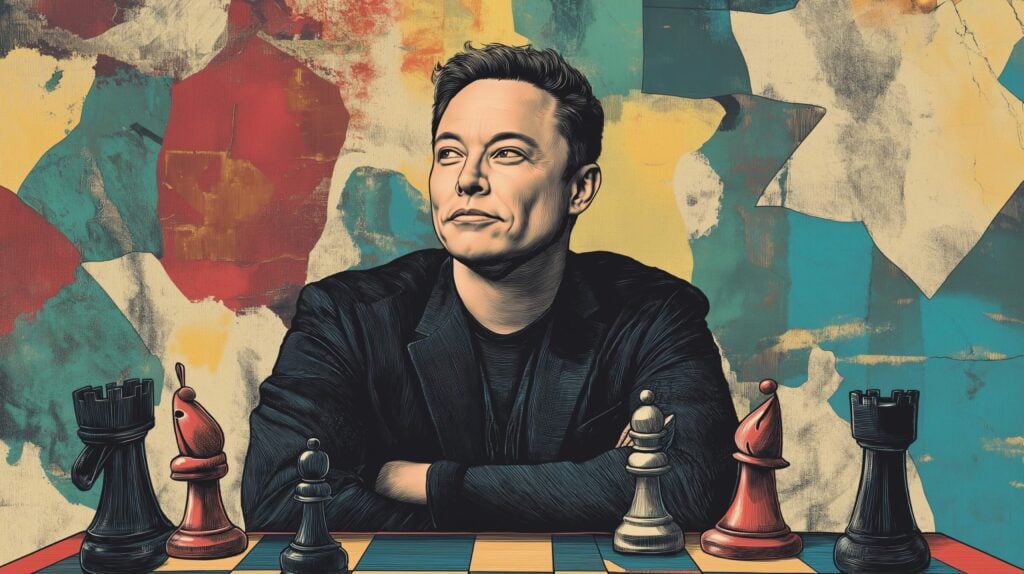Robots should pay social security? That was what Bill Gates said in an interview a few years ago; proposing that in the future, machines should compensate for taking jobs away from people. The idea was that this money could then be used to fund training programmes for those who had to face new challenges because of the changes in the labour market. This is something I would definitely support, and I also understand that many people are currently worried about a future in which robots and artificial intelligence will play an ever greater role. But at the same time I wonder: Is the future of our labour market really so threatened by robots and AI? There is no shortage of work opportunities in the nursing sector, the area of skilled crafts and trade, and administration. So why shouldn’t we use robots and AI in these job sectors? It would also be a contribution to our society. Because if we don’t have a functioning healthcare system, if we can’t get necessary repairs done, or if our cities stop functioning because there aren’t enough people to run them and keep them clean, then we’re going to have big problems.
Robots will not replace humans, but complement them
So there are reasons to be positive about robots and AI. So why do some people not trust this technology? One reason may be that many debates focus only on the economic aspect, comparing the cost or performance of humans and machines. Talking only about cutting costs suggests that the ultimate goal of robotics is to replace humans. Back then, the discussion about Bill Gates’ idea to introduce social security contributions for robots went in a similar direction. The criticism from the industry was again all about the numbers: Entrepreneurs were annoyed that they had to pay even more money for their expensive robots – when they wanted to save money in the long run!
Apart from the fact that, in my opinion, all entrepreneurs have a social responsibility, this calculation probably doesn’t add up anyway. You only have to look at the field of automation technologies to see that even robots have their limits. Companies that have tried to fully automate their processes have found that technologies designed to maximise productivity limit their flexibility. This has led many corporations to abandon the goal of full automation. In today’s world of fast-changing markets and habits, flexibility is at least as important as productivity. People’s creativity and ability to improvise are essential. Machines have never actually replaced workers, but have always complemented and supported them. This has opened up new areas of work for people.
We need clearly regulated machine ethics
It‘s really important for me to emphasise that I don’t see humans as victims of the ground-breaking developments in robotics and artificial intelligence. On the contrary, we should not forget that we all hold our future in our own hands. Without humans, there would be no robots or AI – we shape everything that comes our way in these areas, and it’s up to us to define the tasks that these tools should perform. For example, I think it’s questionable to feed AI with everything that the Wild West of the Internet has to offer. After all, we know that it’s not just baking recipes, scientific treatises and humanistic literature that we find there. There is also an enormous amount of violence, murder and manslaughter. What kind of world view should an AI develop that tries to form an image of us humans on the Internet? There is a great danger that an AI will conclude that we humans love violence! Why else would our entertainment be so full of it? So not only do we need to be clear about what we are using these technologies for, but we also need to have basic ethical rules about how an AI should interpret the knowledge it acquires.
If we discuss these and other questions openly and critically in society, people will lose their mistrust. They will see that politicians and companies are aware of their responsibilities in regard to these new opportunities. It would be counterproductive to fuel the general scepticism in public debate by issuing bans. It’s better to get people excited about the opportunities and possibilities. I can’t stress enough that, in my view, people will always be at the heart of these developments! Intelligent machines – whether self-driving cars or cognitive robots – will be just another tool to make our lives and our society better and more humane.






